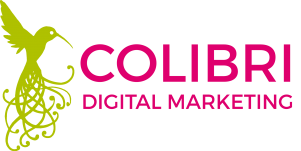

Colibri Digital Marketing

Capital District, Venezuela
September 2016
Advertising & market research
Service with Minor Environmental Footprint
Canada,
France,
Romania,
South Africa,
United States,
Venezuela
Colibri Digital Marketing collaborates with a carefully chosen circle of like-minded clients to create practical, actionable digital marketing plans using a unique strategic branding process to make the most of existing strengths and build capacity where needed. As a full-service digital agency, Colibri Digital Marketing uses a team of specialists to implement industry best practices and the latest marketing technologies. Core to the Colibri philosophy is treating each client’s brand as if it were truly their own. Based in the heart of San Francisco’s dynamic tech scene, Colibri Digital Marketing is a forward-thinking, woman-owned, and certified LGBTBE agency focused on the triple bottom line of people, planet, and profit. Marketing by its nature stimulates consumerism, and for that reason Colibri Digital Marketing seeks to set a values-based industry standard that motivates clients and colleagues to use their power as business owners, brands, and influencers to create a socially and environmentally sustainable present and future. It is their goal to educate, empower, and inspire every individual and business they touch.
Overall B Impact Score
Governance 13.8
Governance evaluates a company's overall mission, engagement around its social/environmental impact, ethics, and transparency. This section also evaluates the ability of a company to protect their mission and formally consider stakeholders in decision making through their corporate structure (e.g. benefit corporation) or corporate governing documents.
What is this? A company with an Impact Business Model is intentionally designed to create a specific positive outcome for one of its stakeholders - such as workers, community, environment, or customers.
Workers 21.7
Workers evaluates a company’s contributions to its employees’ financial security, health & safety, wellness, career development, and engagement & satisfaction. In addition, this section recognizes business models designed to benefit workers, such as companies that are at least 40% owned by non-executive employees and those that have workforce development programs to support individuals with barriers to employment.
Community 35.2
Community evaluates a company’s engagement with and impact on the communities in which it operates, hires from, and sources from. Topics include diversity, equity & inclusion, economic impact, civic engagement, charitable giving, and supply chain management. In addition, this section recognizes business models that are designed to address specific community-oriented problems, such as poverty alleviation through fair trade sourcing or distribution via microenterprises, producer cooperative models, locally focused economic development, and formal charitable giving commitments.
What is this? A company with an Impact Business Model is intentionally designed to create a specific positive outcome for one of its stakeholders - such as workers, community, environment, or customers.
Environment 13.8
Environment evaluates a company’s overall environmental management practices as well as its impact on the air, climate, water, land, and biodiversity. This includes the direct impact of a company’s operations and, when applicable its supply chain and distribution channels. This section also recognizes companies with environmentally innovative production processes and those that sell products or services that have a positive environmental impact. Some examples might include products and services that create renewable energy, reduce consumption or waste, conserve land or wildlife, provide less toxic alternatives to the market, or educate people about environmental problems.
Customers 11.9
Customers evaluates a company’s stewardship of its customers through the quality of its products and services, ethical marketing, data privacy and security, and feedback channels. In addition, this section recognizes products or services that are designed to address a particular social problem for or through its customers, such as health or educational products, arts & media products, serving underserved customers/clients, and services that improve the social impact of other businesses or organizations.
What is this? A company with an Impact Business Model is intentionally designed to create a specific positive outcome for one of its stakeholders - such as workers, community, environment, or customers.